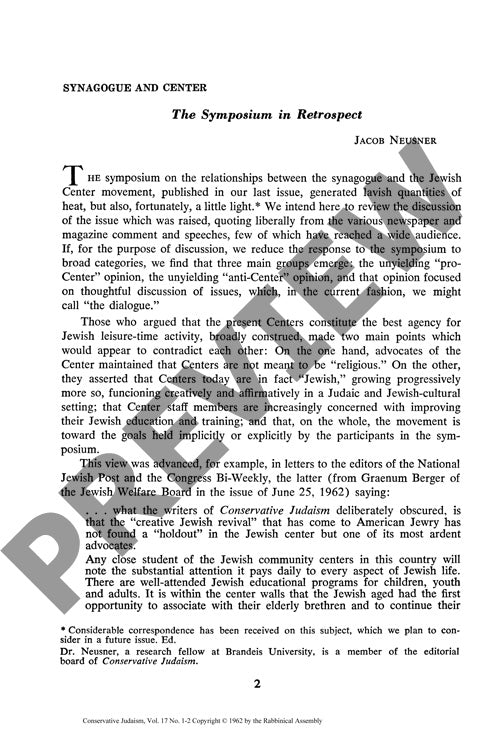Synagogue and Center the Symposium in Re
Couldn't load pickup availability
How should Jewish communal institutions evolve to serve modern American Jewish life? A heated symposium on the relationship between synagogues and Jewish Community Centers sparked intense debate across the American Jewish landscape, revealing deep tensions about institutional roles and religious identity. Through analysis of newspaper coverage, magazine commentary, speeches, and correspondence surrounding the symposium, three distinct positions emerged: Center advocates, Center critics, and bridge-builders seeking dialogue. Center supporters found themselves in a paradoxical position - defending Centers as secular spaces while simultaneously promoting their increasingly Jewish character and programming. They emphasized the Centers' unique capacity to serve diverse Jewish populations and provide neutral ground for cross-denominational gathering. Critics, particularly in suburban areas, questioned Centers' continued relevance where synagogue complexes already fulfilled social and recreational needs, noting that urban Centers increasingly served non-Jewish populations. Beyond immediate institutional concerns, the debate exposed fundamental questions about the historical validity of "religious" versus "secular" distinctions in Jewish life and the broader challenge of maintaining Jewish identity in contemporary America. The analysis demonstrates how institutional tensions reflect deeper uncertainties about American Jewry's spiritual trajectory and cultural preservation.

More Information
-
Physical Description
-
Publication Information
Published 1962
ISBN
-
Publication Credits
Jacob Neusner

